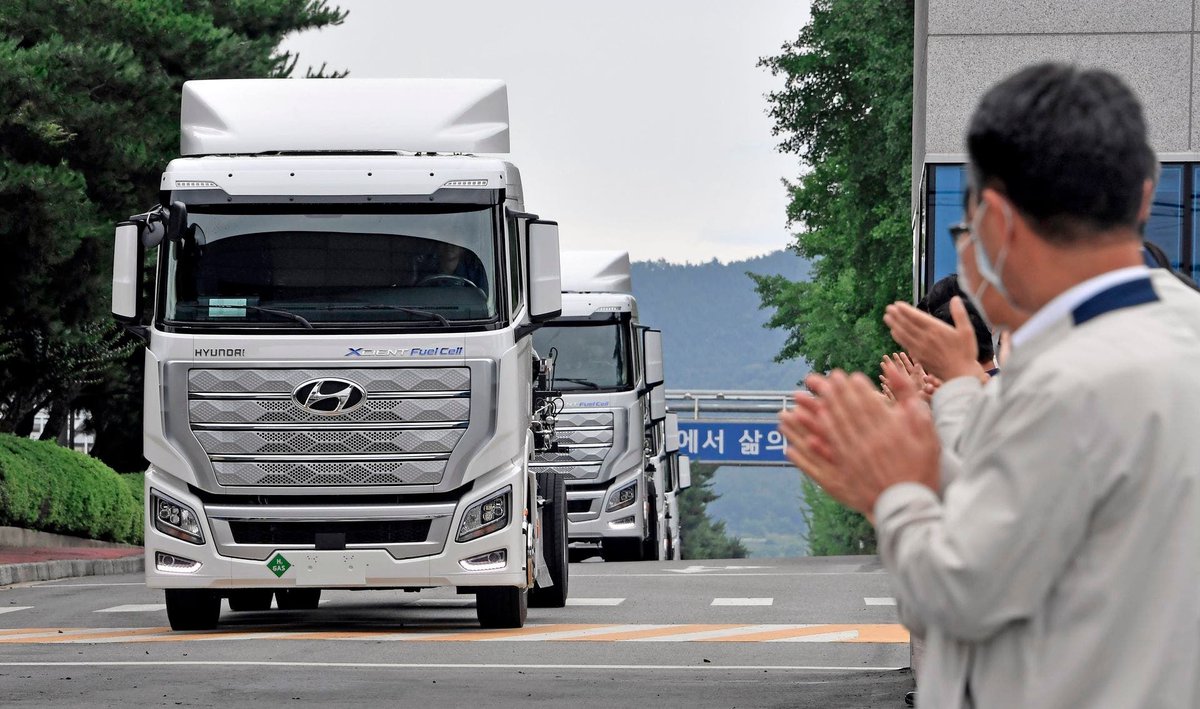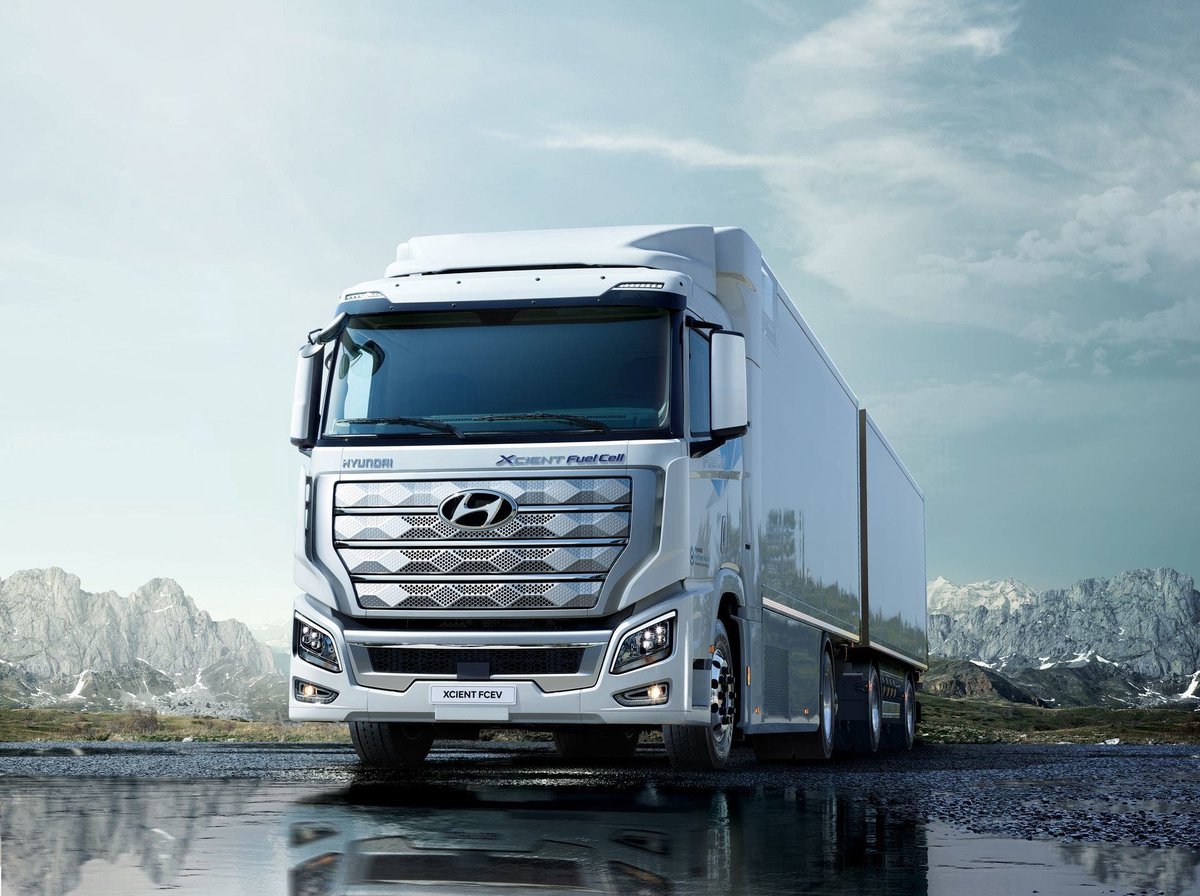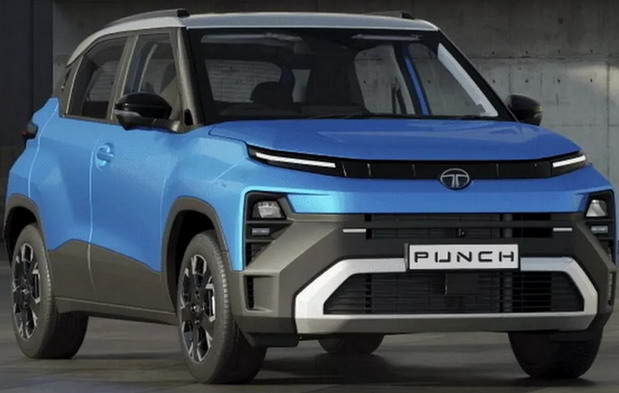HYUNDAI

Brand wants to revolutionize Europe and EUA with its new hydrogen-powered trucks
Switzerland has already received the first 10 hydrogen-powered trucks, out of a total of 50 units that Hyundai will deliver by September to commercial fleet customers. The model in question is called XCIENT Fuel Cell and uses a 190 kW fuel cell system with two 95 kW fuel cells, which supply an electrical system with a 73.2 kWh and 661V battery, ensuring the heavy capacity to cover 400 km with 32 kg of hydrogen stored in seven tanks at a pressure of 350 bar. The manufacturer also stresses that the announced range is obtained in the 4 × 2 configuration, that is, the four wheels of the chassis / cabin plus the two wheels of the trailer, operating with 34 tons and refrigeration of goods that must be kept cold.
From a commercial point of view, the deal is interesting because, in the European Union, around 62% of long-distance journeys with trucks cover at least 400 km - which means that XCIENT is not limited in terms of reach. Then, as the heavy vehicle is supplied on a leasing basis, the customer not only does not have to advance money but also has usage costs similar to diesel, as this type of proposal is not subject to the taxes that diesel has to pay. Fuel is still relatively expensive and the Spartan supply infrastructure in many countries, but Hyundai says that, in the Swiss case, this gap is overcome with the help of Hydrospider:
"By using hydrogen powered vehicles in commercial transport, Hyundai ensures a constant demand for hydrogen. And by producing industrial hydrogen, Hydrospider ensures a continuous supply. This is the basis for making hydrogen mobility economically viable, allowing for its growth ”, Defends the South Korean manufacturer, adding that“ through this process, Hyundai will gradually build hydrogen infrastructure in Switzerland ”.
The engine that drives the XCIENT is Siemens, delivering 350 kW (476 hp) and offering a maximum torque of 3400 Nm, which is more than enough to pull the vehicle which, in the cargo configuration (chassis / cabin) has a maximum authorized mass of 19 tons. With a trailer it can go up to 34 tons, with the chassis cabin alone weighing 9.8 tons empty. The truck, with 9.75 meters in length, takes 8 to 20 minutes to fill up with hydrogen.
By 2025, Hyundai says it will deliver 1,600 units of what it describes as "the world's first hydrogen-powered heavy-duty truck to be produced in series". In the pipeline is also a tractor for long distances, capable of covering 1000 km on a single load. According to the brand, it will be a global product, destined even for Europe and the United States of America, being “equipped with an improved fuel cell system with high durability and power”.

Toyota and Hyundai are, at the moment, the manufacturers that most bet on hydrogen, believing that the current costs of the technology will go down and, with this, make possible the solution of the fuel cells to generate energy on board. In theory, the bet makes perfect sense, as it frees electric vehicles from the tremendous weight of batteries, with the advantage that they can travel greater distances and take almost the same time to fill up the hydrogen tanks that would take to top up diesel. In the specific case of the Hyundai Motor Group, there is a public commitment to “ensure the production of 700 thousand units / year of fuel cell systems for automobiles, ships, wagons, drones and power generators by 2030”.
Nevertheless, in the perspective of Transport & Environment, battery powered electric trucks will cost as much as their diesel rivals until the beginning of the next decade, without counting hypothetical state aid, whereas parity in hydrogen-powered heavy vehicles should only be achieved 10 years later.
Autonews

Nenhum comentário:
Postar um comentário